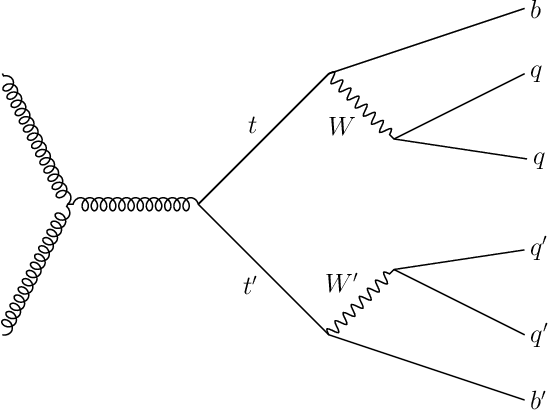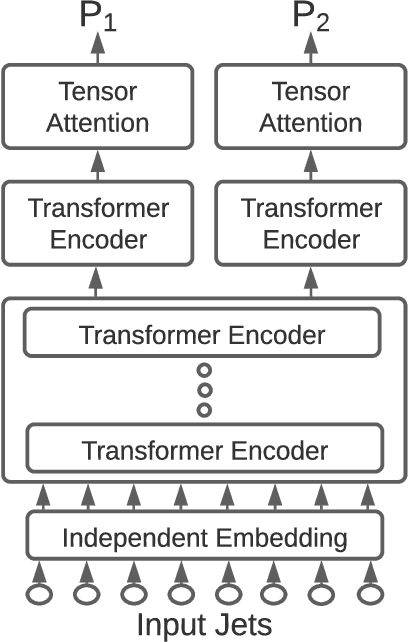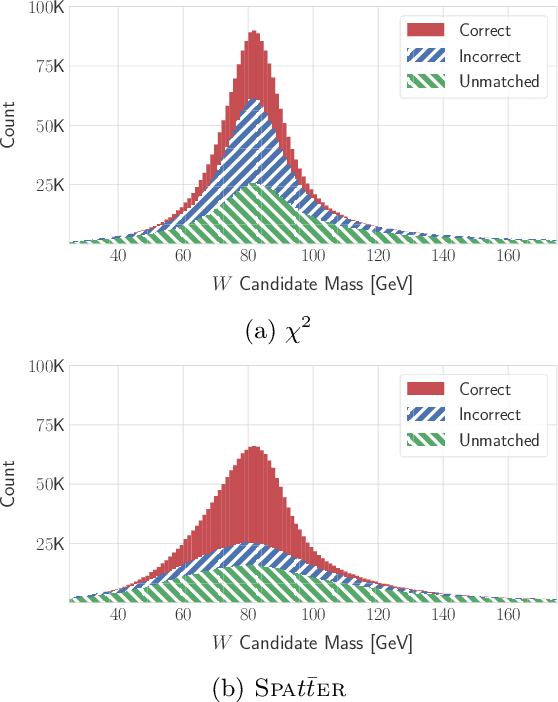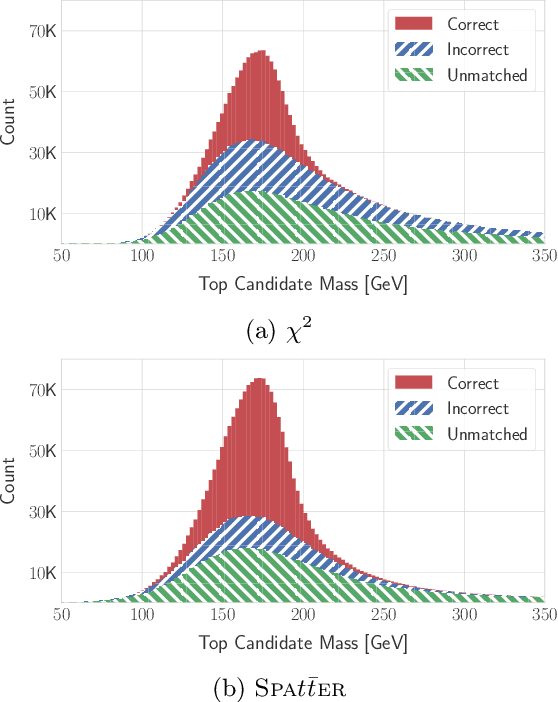Permutationless Many-Jet Event Reconstruction with Symmetry Preserving Attention Networks
Paper and Code
Nov 03, 2020



Top quarks, produced in large numbers at the Large Hadron Collider, have a complex detector signature and require special reconstruction techniques. The most common decay mode, the "all-jet" channel, results in a 6-jet final state which is particularly difficult to reconstruct in $pp$ collisions due to the large number of permutations possible. We present a novel approach to this class of problem, based on neural networks using a generalized attention mechanism, that we call Symmetry Preserving Attention Networks (SPA-Net). We train one such network to identify the decay products of each top quark unambiguously and without combinatorial explosion as an example of the power of this technique.This approach significantly outperforms existing state-of-the-art methods, correctly assigning all jets in $93.0%$ of $6$-jet, $87.8%$ of $7$-jet, and $82.6%$ of $\geq 8$-jet events respectively.
 Add to Chrome
Add to Chrome Add to Firefox
Add to Firefox Add to Edge
Add to Edge